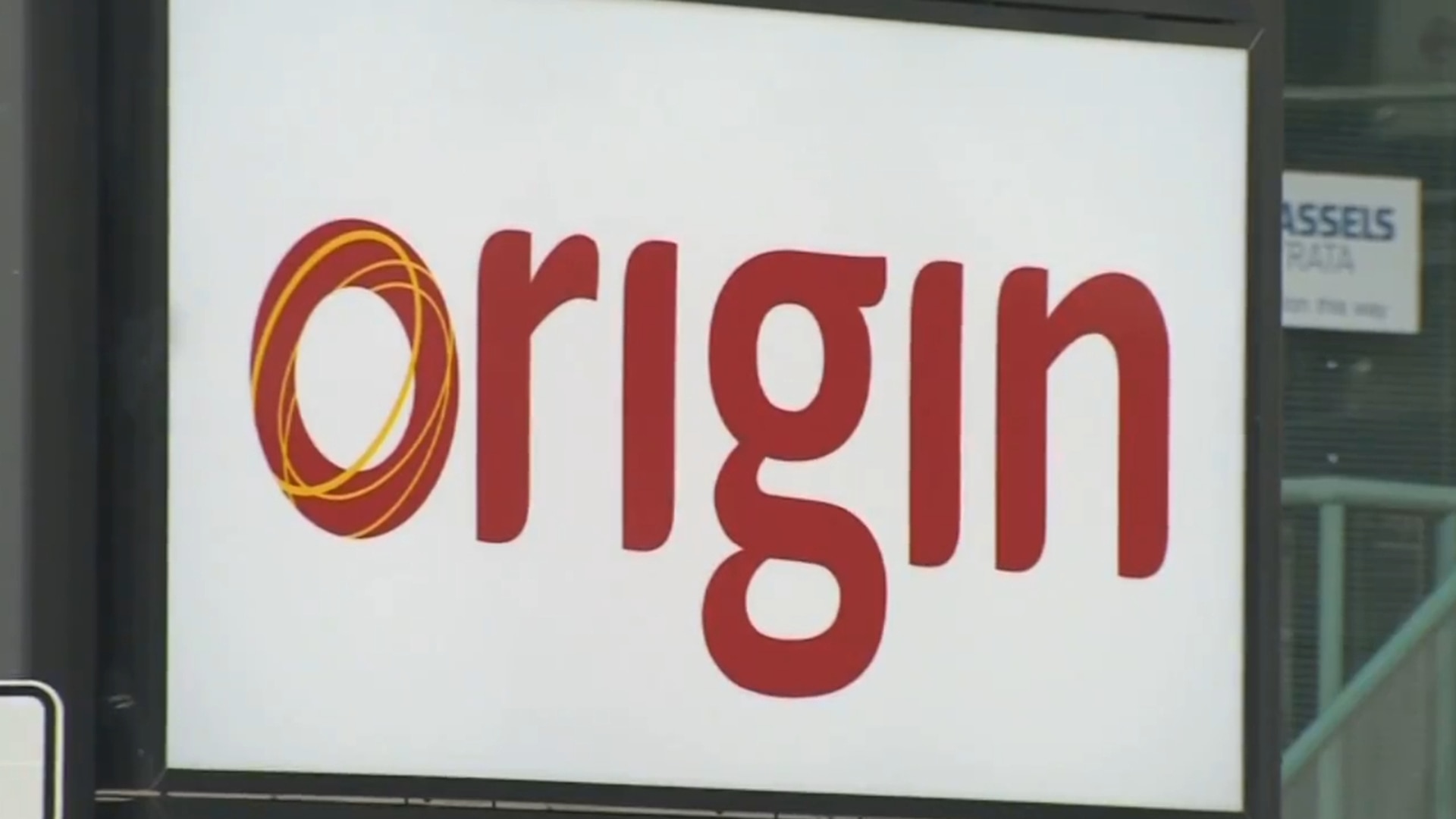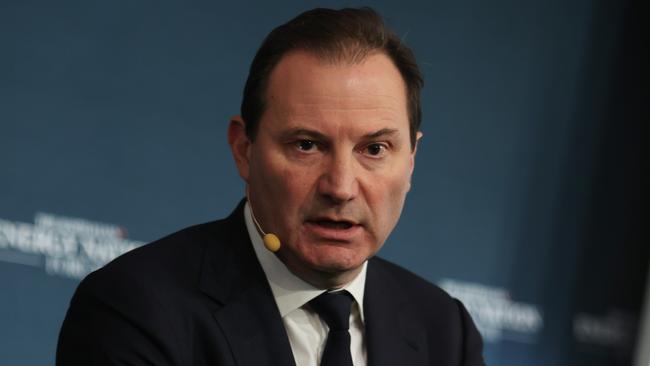Origin warns energy market reform urgently needed after profits jump 23pc
Australia’s largest electricity and gas retailer says market rules must be urgently changed and action taken to address structural gas deficits in order to ensure the country’s grid remain reliable.

Business
Don't miss out on the headlines from Business. Followed categories will be added to My News.
Australia’s largest electricity and gas retailer Origin Energy has warned market rules must be urgently changed and action taken to address structural gas deficits in order to ensure the country’s grid remain reliable.
Origin Energy chief executive Frank Calabria’s grim warning underscores broad alarm about the trajectory of Australia’s energy transition and the prospect of economic damage.
The Albanese government has set an aggressive target of having renewables generate 82 per cent of the country’s power by 2030, but Mr Calabria on Thursday warned the country’s rules critically do not incentivise and recognise the important role of gas.
“As we go through this transition it is imperative that the policies focus on energy security and the reason is market design will need to change to be fit for purpose in a world with a high penetration of renewable energy and in our view that very strongly requires a capacity mechanism design that does include gas,” he said after the group reported higher than expected interim earnings.
The comments mark the latest attempt by Australia’s energy industry to move policymakers to create a market mechanism that would incentivise the development of new gas power stations.
Australia’s energy industry has warned that gas is currently the only fuel source capable of being run for long periods when weather conditions are unsuitable for renewable energy generation.
Market signals have incentivised a spate of new large batteries, but predicting the usage of gas is difficult. Typically, a gas power station may only be needed for around 5 per cent of the time, levels that developers said would not cover the cost of building and fuel costs.
Instead, the industry has called for gas power stations to be paid for being ready to dispatch.
Some states are already beginning to move. South Australia last year said it is now considering holding annual tenders where generators and battery operators can bid for a contract to underwrite a portion of their revenue – a scheme the state said will be called the Firm Energy Reliability Mechanism.
Other states could follow suit, much to the relief of Australia’s energy market, which has increasingly warned that the inability to firm renewables makes the grid susceptible to periods of adverse weather when wind and solar generation could be curtailed.
Mr Calabria’s comments came as Origin upped its dividend payments. Origin declared a dividend of 30c a share for the six months to December 31, up 9 per cent from 27.5c a share last year, on the back of a 23 per cent jump in underlying profits.
The financial results will soothe any lingering concern about the capacity of Origin to reward shareholders while the company replaces its fossil fuel generation capacity – most notably NSW’s largest coal power station.
Mr Calabria says the results illustrates the enviable position that the company has by having multiple revenue streams.
“It highlights that we have two diverse operating businesses in Australia that can contribute whilst also having the global growth opportunities on technology and energy,” Mr Calabria told The Australian.

Underlying profit soared to $924m from $747m. Statutory profit, which includes an array of financial instruments that can be volatile, rose 2 per cent.
The varied structure of Origin was a key reason why some investors rejected the near $20bn offer from Brookfield back in 2023 – a deal widely seen as potentially a catalyst for Australia’s transition to renewable energy.
Brookfield had promised to develop 14GW of renewables – a promise that eventually swayed the Australian Competition and Commission to give the transaction the green light.
The result was driven principally by Origin’s LNG investment – the Australia Pacific LNG joint venture. Origin said revenues from the integrated gas division rose 25 per cent year-on-year.
The jump offset weaker returns from Origin’s energy market business, which is the division which supplies about 4.7 million household and business customers with electricity.
Origin’s energy market business has been hit by lower annual bill tariffs, and the future of the division will be determined when the Australian Energy Regulator determines the next bill tariff.
The Default Market Offer, the benchmark on which all retail bills are set, is calculated annually as the AER considers the wholesale cost of electricity, the toll of transporting electricity, and the cost of compliance with government rules and regulations.
Mr Calabria said it remained too early to be certain of how the next tariff will be set but noted wholesale electricity prices – which are the biggest component of how the regulator sets bills – is up slightly on 2024 levels.
Wholesale electricity prices have rallied in recent weeks amid a string of unplanned coal power stations outage – including at Eraring. These outages unfortunately coincided with a spell of hot weather across Australia’s east coast that saw a spike in electricity demand.
Any suggestion of higher retail bills would be politically sensitive. The Albanese government must return to the polls by May, around the time the AER is scheduled to release its draft ruling, and any sign of bill increases would be a hammer blow.
Analysts have, however, noted that the watchdog includes wholesale costs over a multi-year period, so even higher wholesale prices in recent months are not guaranteed to lead to higher tariffs when they are reset on July 1. Indeed, the record surge in 2022 could well drop out of the regulator’s calculations.
More Coverage
Originally published as Origin warns energy market reform urgently needed after profits jump 23pc





